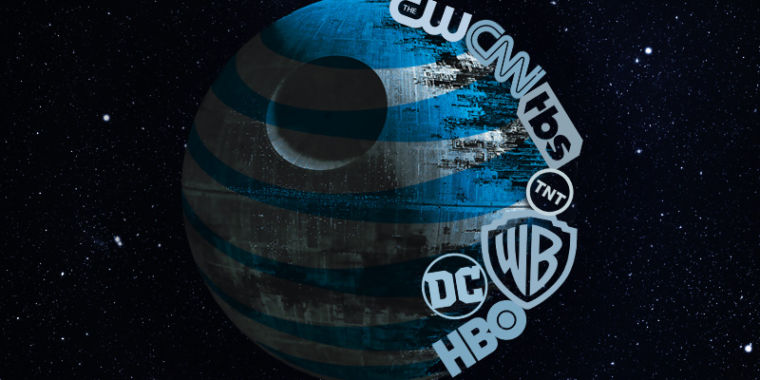
AT&T has won a court ruling that will allow it to buy Time Warner Inc.
The ruling (PDF) by US District Judge Richard Leon went entirely in AT&T’s favor. The Department of Justice had sued AT&T to block the merger. The judge’s ruling will reportedly let AT&T complete the purchase without spinning off any subsidiaries.
The government can appeal the ruling, but Leon reportedly said that he would reject any government motion for a stay that would further delay the deal. The case was held in US District Court for the District of Columbia.
“We are pleased that, after conducting a full and fair trial on the merits, the Court has categorically rejected the government’s lawsuit to block our merger with Time Warner,” AT&T General Counsel David McAtee said.
AT&T said it intends to close the merger by June 20. It’s not yet clear whether the government will appeal. “The Justice Department’s antitrust chief, Makan Delrahim, said he was disappointed and will consider the government’s next steps,” Bloomberg reported.
AT&T and Time Warner Inc. announced their proposed merger in October 2016. AT&T has been the nation’s largest pay-TV company since it acquired DirecTV in 2015, and is one of the largest providers of home and mobile broadband service. Time Warner owns HBO, Warner Bros., and Turner Broadcasting System.
As the owner of Time Warner, AT&T would be able to set the price that other cable or satellite companies must pay for a large quantity of TV programming.
DOJ said merger will raise prices
The Federal Communications Commission under Chairman Ajit Pai allowed AT&T to skip a lengthy public-interest review. But the Department of Justice sued to block the $108 billion merger in November 2017, saying the deal is likely to raise consumers’ TV bills.
The DOJ argued that buying Time Warner and its stable of popular TV programming would give AT&T too much control over programming and distribution.
“AT&T/DirecTV would hinder its rivals by forcing them to pay hundreds of millions of dollars more per year for Time Warner’s networks, and it would use its increased power to slow the industry’s transition to new and exciting video distribution models that provide greater choice for consumers,” the DOJ said in its complaint. “The proposed merger would result in fewer innovative offerings and higher bills for American families.”
AT&T disputed the government’s math, and tried to prove that President Trump meddled in the government’s merger review. Trump had pledged to block the deal when he was campaigning for president.
But AT&T failed to provide any evidence suggesting that the DOJ’s prosecution of the merger had “discriminatory effect and discriminatory intent,” Leon said in a ruling earlier in the trial.
AT&T argued that the merger will help customers without harming AT&T’s business rivals, and that the combined company wouldn’t have enough market power to raise antitrust concerns. Customers will benefit from new bundles and offerings made possible by the merger, and the combined company will “develop new ad-supported video models that shift more costs to advertisers and off consumers,” AT&T argued.
Consumer advocacy group Public Knowledge was disappointed by today’s ruling.
“This is a disappointing result, and we expect the government will appeal,” Public Knowledge Senior Counsel John Bergmayer said. “In the meantime, not only may consumers be harmed directly by the anticompetitive harms that this merger will cause, such as higher bills and fewer choices of programming and provider, but also by the many other mergers it will encourage.”
US Sen. Amy Klobuchar (D-Minn.) urged the DOJ to appeal.
“Allowing this merger to proceed raises serious concerns for consumers and the future of American media, and also sends a troubling signal to others that it’s open season for vertical mergers that could allow a company to raise the cost of essential products and services that its rivals need to compete, leading to higher costs for consumers and less innovation,” Klobuchar said. “I urge the Justice Department to take swift action to appeal this judgment to ensure that competition and consumers are protected.”
Be the first to comment